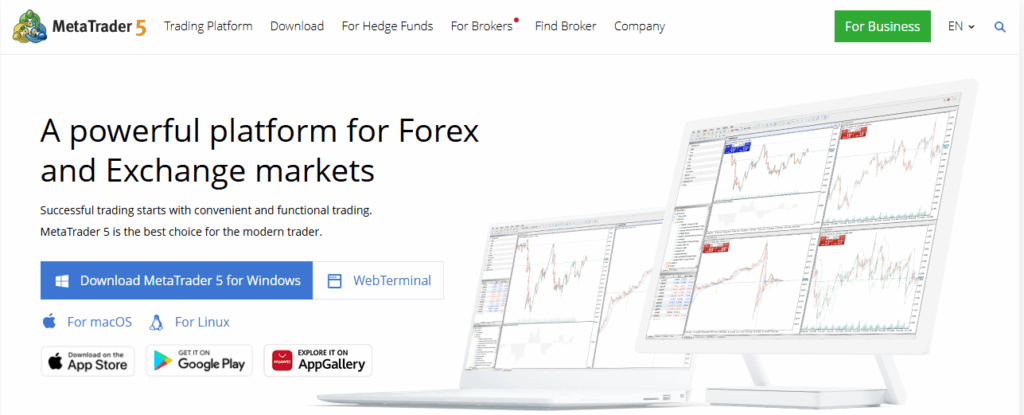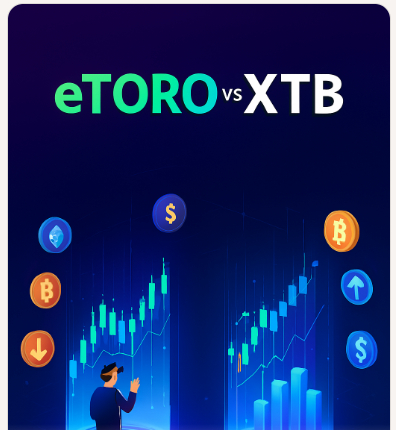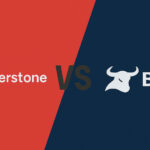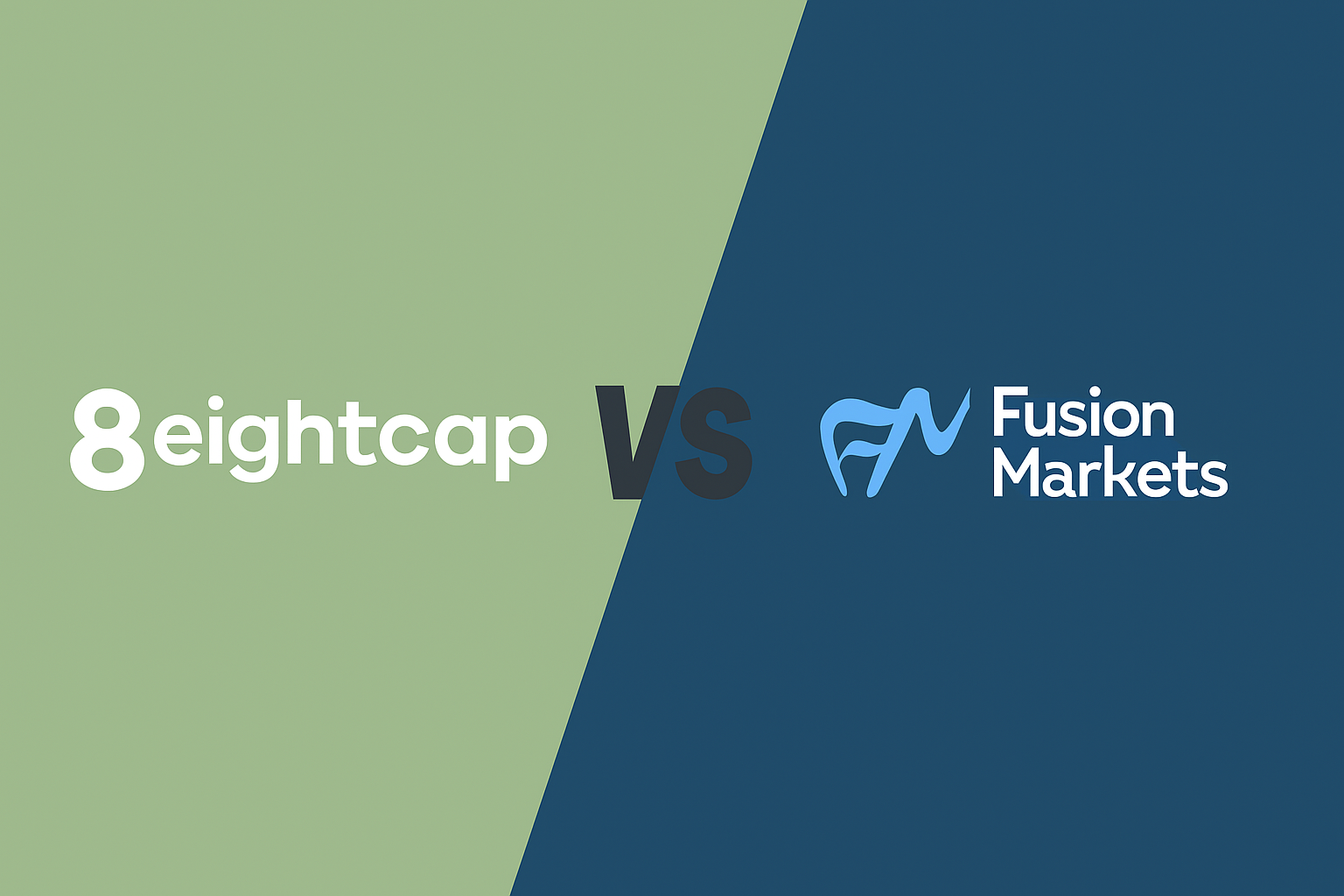eToro Vs XTB are among the best trading platforms available. eToro is known for its social and copy trading features for seamless and interactive investing. On the other hand, XTB has its own cutting-edge xStation 5 and superior trading instruments to facilitate professionals in the industry .
This Comparison conducts an in-depth analysis of the two to help you select the best trading broker that aligns with your trading goals in terms of charges , platform , regulatory approaches and key for you.
What is eToro?
Founded in 2007, eToro has become a leading global social trading and multi-asset investment platform. Users can trade and invest in stocks, cryptocurrencies, forex, commodities, and ETFs, among other financial instruments.

eToro’s social trading function distinguishes it from the competition. With the CopyTrader™ system, users can follow seasoned investors, interact with them, and copy their trading techniques.
Beginners and professional traders alike can appreciate the platform’s simple layout, sophisticated charting instruments, and user-friendly mobile app. Finally, eToro is licensed with the top-tier authorities which makes it a reliable and safe trading environment.
What is XTB?
Founded in 2002, XTB is a global online trading platform which gives access to different financial markets, including cryptocurrencies, commodities, stocks, indices, and forex.

XTB is known for the xStation 5 platform, which features real-time market analysis, advanced charting tools, and rapid execution. XTB is regulated by CySEC and the FCA which ensures the safety and transparency of the trading environment.
There is a broad array of trading educational materials for beginner and advanced professionals along with active customer support and competitive spreads. XTB is a reliable and innovative online trading platform.
Key Point
| Highlights | XTB | eToro |
|---|---|---|
| Founded Year | 2002 | 2007 |
| Regulatory Entities | FCA, KNF, CySEC, DFSA, and FSC | FCA, CySEC, and ASIC |
| Trading Instruments | Stocks, ETFs, and CFDs on stocks, forex, indices, commodities, and cryptocurrencies. (Stocks and ETFs are available in specific regions such as the Czech Republic, Dubai, France, Germany, Italy, Poland, Portugal, Romania, Slovakia, Spain, South America, and the UK.) | Stocks, ETFs, cryptocurrencies, and CFDs on stocks, ETFs, commodities, forex, indices, and cryptocurrencies. |
| Minimum Deposit | €/$/£0 | From €/$/£10 |
| Trading Platforms | xStation 5, xStation Mobile | eToro Web Trader, eToro App |
| Interest on Cash Balances | 2.30% (EUR), 4.20% (USD), 4.25% (GBP) | Up to 4.3% (USD) |
| Stock Fees | Commission-free up to €100,000 monthly volume; 0.20% fee applies beyond that limit. | $1 or $2 per transaction |
| Social Trading | ❌ Not Available | ✔️ Available |
| Demo Account | ✔️ Yes | ✔️ Yes |
| Leverage | Up to 1:500 (varies by jurisdiction) | Up to 1:30 (retail) and up to 1:400 (professional) |
Comparison on Fees/Costs: eToro and XTB
In terms of costs and commissions for trading, eToro and XTB both do well, and both got a score of 4.5 Stars for ForexBrokers.com. Nevertheless, XTB does rank better at 12 out of 63 brokers, whereas eToro ranks 23, showing XTB has a bit more competitive pricing.
XTB built his pricing system around the Standard account, which is spread-only with a minimum deposit of 250 (in your base currency) required. During Q4 of 2023, XTB declared his EUR/USD average 1 pip spread, which is close to the average for the whole market.
Even though XTB is not the one with the lowest cost for the spread for the market, his pricing is still good, especially for customers that trade at low to medium levels.
Pro account which has a commission structure is used only by professional traders in the U.K. and in the EU, and is being diminished. Talking of volume, traders will enter the Lower Spread Group with 5-30% spread rebates. This is tiered with their volume for the month, which is 20 to 1,000 lots.
eToro holds the role of a market-maker and showcases a variable spread of about 1 pip on EUR/USD, which is reasonably above the average in the market. Instead of concentrating on the least spreads, eToro draws the attention of traders with its social and copy trading features.
Their VIP program, the eToro Club, consists of five levels (Silver to Diamond) for account balances of $5,000 to $250,000. Tiers offer exclusive benefits such as access to Trading Central, lowered deposit and withdrawal fees, and a personal account manager.
To summarize, eToro’s fees and commissions remain solid as 4.5 stars, and is ranked #23 of 63 brokers, which reflects good value for the number of features offered.
Deposits & Withdrawals
eToro offers various methods for deposits and withdrawals, such as bank transfers, credit and debit cards, PayPal, Neteller, Skrill, Rapid Transfer, iDeal, Klarna, Trustly, Przelewy24, and the eToro Money Wallet. All methods are available.
Most methods are instantaneous, except for bank transfers, which take 4–7 business days. All deposits are free except for currency conversion which will be charged. A $5 withdrawal fee applies regardless of payment method and is clocked as a withdrawal.
In contrast, XTB offers free deposits through bank wire transfers and cards (Visa, Mastercard, Maestro). However, Skrill deposits result in a 2% increase in payment. All forms of payment are instant except for bank wires, which may take up to one business day. Withdrawals through bank transfers are free for over $100 and apply a $20 fee for $100 and under.
Platforms & Tools
eToro has a user-friendly and robust proprietary trading platform focused primarily on social and copy trading features. With CopyTrader™ and CopyPortfolios™, you can follow and adopt the trading methods of the platform’s leading investors.
Designed for novice and social traders, the web and mobile platform offers a beginner-friendly interface, seamless execution, real-time updates, powerful charting options, and a range of analysis tools.
In contrast, XTB has its xStation 5, a also a powerful trading platform, highly recognized for speed, advanced analytics, customizable charts, and various order types.

Even though xStation 5 does not integrate with MetaTrader 4 or 5, it provides built-in market analysis and sentiment-driven trading, along with advanced risk management features, satisfying traders who appreciate significant control along with technical prowess.
Is eToro or XTB Better for Beginners?
As a result of its straightforward and user-friendly design, eToro is typically perceived as the more beginners-friendly option. The social trading option available to begining traders allows them to ‘copy’ more experienced traders, which is a great advantage.
The demo account, as well as the educational materials focused on beginners, is a great added advantage. Educational materials at XTB, as well as responsive customer support, are great indicators of support for beginners. However, the platform may feel a little advanced for beginners to which educational materials at XTB can support this.
Is eToro or XTB Better for Experienced Traders?
For e experienced traders, XTB may be the preferred option as a result of the robust xStation 5 platform which offers enhanced charting options, advanced order features, and market analysis.
XTB allows direct share trading which is an additional advantage for eXtensive traders. eToro certainly offers professional accounts, however, they are lacking in certain advanced features such as integration with external platforms like MetaTrader.
Regulation & Trust
eToro and XTB are monitored by the UK’s Financial Conduct Authority (FCA) along with the Cyprus Securities and Exchange Commission (CySEC) along with other top tier authorities This provides evidence ion of a high degree of security, compliance, client and fund protection, as well as trust.
Not only is this trust built on the segregation of client accounts allotted by both of the brokers, it is also built on the separation of traders capital from the working capital of the business as a whole.
Nevertheless, eToro enjoys a somewhat stronger trust profile due to its track record and global reputation. As a publicly listed company on the Warsaw Stock Exchange, XTB enjoys a high level of transparency, and although it has incurred minimal regulatory fines historically, those trust perceptions are slightly affected. Nonetheless, its transparency, along with its robust financial reporting, continues to enhance trust among investors.
Customer Support
Through a ticketing system, eToro facilitates customer support, which can take a maximum of 2 business days for a reply. Active traders having a minimum of $5,000 in their accounts are privileged with live chat and phone support. During our live test, which involved ticket submission, we got a reply in 2 days, and it was comprehensive and detailed.
XTB customer support is knowledgeable, and support is available 24/5 in several languages via live chat, phone, and email. During our evaluation, the best response times were noted over the phone, and longer wait times were encountered for live chat.
Available Markets — eToro vs XTB
| Market Category | eToro | XTB |
|---|---|---|
| Currency Pairs (Forex) | ✅ Yes | ✅ Yes |
| Cryptocurrencies | ✅ Yes | ✅ Yes |
| Commodities (Oil, Gold, Metals) | ✅ Yes | ✅ Yes |
| Equity Indices | ✅ Yes | ✅ Yes |
| Stocks (Real & CFDs) | ✅ Yes | ✅ Yes |
| Bonds | ❌ Not Offered | ✅ Yes |
| ETFs | ✅ Yes | ✅ Yes |
| Options | ❌ Not Offered | ❌ Not Offered |
| Futures | ❌ Not Offered | ✅ Yes (via CFDs) |
| Synthetic Products | ❌ Not Offered | ❌ Not Offered |
eToro pros and cons
Pros
- Beginner-friendly interfaces.
- Strong social and copy-trading functions; users can follow and copy experienced traders.
- In several areas of the world, users can purchase stocks and ETFs without paying a commission.
- Various asset choices; stocks, ETFs, cryptocurrencies, and CFDs on multiple instruments.
- International regulation boosts trust and safety.
- Free practice on a demo account
❌ Cons
- Compared to some competitors, spreads and fees can be higher—especially during active trading or for crypto trades.
- Fees for withdrawals, conversion of currencies, and international reach.
- Professional traders likely missing some of the advanced tools and features provided by the platform.
- Every country and region may not access some features—regulatory and market limitations are enforced.
Pros and Cons of XTB
✅ Pros
- Governing and supervisory bodies include the UK’s Financial Conduct Authority and Cyprus’s Cyprus Securities & Exchange Commission, meaning better oversight and fund protection measures. About Benchmark for Brokers.
- XTB has the xStation 5 platform they built and developed themselves. Highly rated for the UI and reliability, speed analytics and fast dependable charts.
- XTB has the ability to trade a diverse set of instruments such as: forex, commodities, indices, stocks/ETFs (only in select areas), and CFDs on cryptocurrencies.
- They have zero commission on stocks/ETFs for some of the month and tight spreads for trading the forex.
- Many areas have little to no minimum deposit, and they also have demo accounts.
❌ Cons
- For some locations they also do not have support for the widely used third-party platforms, which may hold traders back that use those platforms and/or custom indicators or EAs.
- Retail maximum leverage assigned to some areas (i.e. EU/UK to 1:30) is a trade restraining regulation on leverage aggressive trading.
- Charges which may influence inactivity traders, for example during inactivity trading sessions and small withdraws in selected areas.
- CFDs are the primary focus with some brokers, meaning you might not own the underlying asset, which may not fit “buy and hold” investors who want to own stocks/ETFs directly.
Security and Trust
| Category | eToro | XTB |
|---|---|---|
| Country of the Regulator | Australia, Cyprus, Seychelles, United Kingdom | Belize, Cyprus, Poland, United Kingdom |
| Name of the Regulator | ASIC (Australian Securities & Investments Commission), CySEC (Cyprus Securities & Exchange Commission), FCA (Financial Conduct Authority), FSA (Financial Services Authority – Seychelles) | KNF (Polish Financial Supervision Authority), FCA (Financial Conduct Authority), CySEC (Cyprus Securities & Exchange Commission), IFSC (International Financial Services Commission – Belize) |
| Regulatory License Number | 491139 (ASIC), 109/10 (CySEC), 583263 (FCA), SD076 (FSA) | 000302/438 (KNF), 522157 (FCA), 169/12 (CySEC), 0000217580 (IFSC) |
| Regulatory Tier | Top-tier global regulators | Tier 4, Tier 1, Tier 1, Tier 1 |
| Trust & Transparency Note | eToro is regulated across multiple major jurisdictions ensuring strong client protection and operational transparency. | XTB maintains strong oversight from top-tier regulators, though jurisdictional differences may affect investor protection levels. |
| Risk Warning | 61% of retail CFD accounts lose money. | 61% of retail CFD accounts lose money. |
| Official Website | Visit Website | Visit Website |
Conclusion: eToro vs XTB
In conclusion, eToro and XTB are both reputable, regulated, and feature-rich trading platforms, but each attracts different types of traders. eToro attracts beginners and social investors because of its simple interface and ability to copy professional traders with its CopyTrader™ feature. Also, for casual and long-term investors, its assortment of assets, comprising stocks, ETFs, forex, and cryptos, makes it an all-in-one platform.
Conversely, XTB is more suitable for experienced and active traders who require meticulous market study and swift execution. With advanced charting, market research, and sophisticated trading capabilities on xStation 5 platform, XTB offers a professional-grade trading experience. Coupled with competitive pricing, XTB is a reliable platform due to its stringent regulations, especially for professional CFD and forex traders.
Ultimately, opt for eToro when seeking a social, beginner-friendly investing experience, and choose XTB for technical precision, comprehensive analytics, and a traditional trading environment. The reliance and safety of both brokers are guaranteed, but your trading style and experience level will determine which is more suitable for you.
FAQ
Which is better, eToro or XTB?
Both eToro and XTB are excellent brokers, but the better choice depends on your trading style. eToro is best for beginners and social traders who prefer a simple interface and copy trading features, while XTB is ideal for experienced traders who want advanced analysis tools and fast trade execution.
Is eToro safe to trade with?
Yes, eToro is a highly regulated broker supervised by authorities such as the FCA (UK), CySEC (Cyprus), ASIC (Australia), and FSA (Seychelles). It also uses segregated client accounts to ensure traders’ funds are protected.
Is XTB a trusted broker?
Absolutely. XTB is regulated by top-tier bodies including the FCA (UK), CySEC (Cyprus), KNF (Poland), and IFSC (Belize). It’s also a publicly listed company on the Warsaw Stock Exchange, which adds transparency and credibility.
Which platform offers lower fees?
Both brokers are competitive in pricing, but XTB generally offers slightly lower spreads and commission-free trading on stocks and ETFs up to a certain limit. eToro, however, charges a small withdrawal fee and slightly higher spreads due to its social trading model.
Which platform is better for beginners?
eToro is more beginner-friendly thanks to its intuitive design, social features, and the ability to copy trades from experienced investors. XTB, while powerful, is more suited for traders with some experience in technical analysis.
Does eToro or XTB offer a demo account?
Yes, both eToro and XTB offer free demo accounts, allowing users to practice trading with virtual funds before investing real money.









